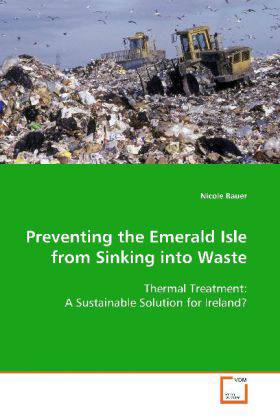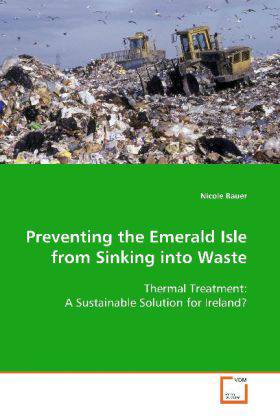
- Afhalen na 1 uur in een winkel met voorraad
- Gratis thuislevering in België vanaf € 30
- Ruim aanbod met 7 miljoen producten
- Afhalen na 1 uur in een winkel met voorraad
- Gratis thuislevering in België vanaf € 30
- Ruim aanbod met 7 miljoen producten
Zoeken
Preventing the Emerald Isle from Sinking into Waste
Thermal Treatment: A Sustainable Solution for Ireland?
Nicole Bauer
Paperback | Engels
€ 63,45
+ 126 punten
Omschrijving
Since its economic boom in the 1990s Ireland has been
facing ever growing waste arisings. Strict European
legislation forced the country to find alternative
solutions to sole waste disposal on which the country
had been relying on exclusively. The Irish Government
has aimed to decouple waste production from economic
growth. The author doubts that the planned
introduction of thermal treatment facilities would be
an appropriate way to achieve the country s ambitious
targets in terms of waste management. Alternatively
the author introduces a zero waste approach as a
solution to Ireland s waste problems. If a zero waste
approach was applied emphasis would have to be put on
reduction, minimization and recycling. Accordingly,
the country of Ireland would pay its contribution to
world wide challenging environmental protection and
sustainable resource management.
facing ever growing waste arisings. Strict European
legislation forced the country to find alternative
solutions to sole waste disposal on which the country
had been relying on exclusively. The Irish Government
has aimed to decouple waste production from economic
growth. The author doubts that the planned
introduction of thermal treatment facilities would be
an appropriate way to achieve the country s ambitious
targets in terms of waste management. Alternatively
the author introduces a zero waste approach as a
solution to Ireland s waste problems. If a zero waste
approach was applied emphasis would have to be put on
reduction, minimization and recycling. Accordingly,
the country of Ireland would pay its contribution to
world wide challenging environmental protection and
sustainable resource management.
Specificaties
Betrokkenen
- Auteur(s):
- Uitgeverij:
Inhoud
- Aantal bladzijden:
- 100
- Taal:
- Engels
Eigenschappen
- Productcode (EAN):
- 9783639075601
- Verschijningsdatum:
- 6/11/2008
- Uitvoering:
- Paperback
- Afmetingen:
- 152 mm x 220 mm
- Gewicht:
- 145 g

Alleen bij Standaard Boekhandel
+ 126 punten op je klantenkaart van Standaard Boekhandel
Beoordelingen
We publiceren alleen reviews die voldoen aan de voorwaarden voor reviews. Bekijk onze voorwaarden voor reviews.








